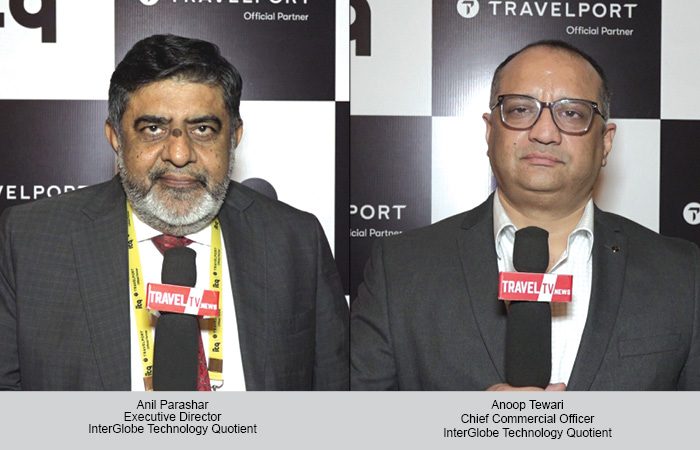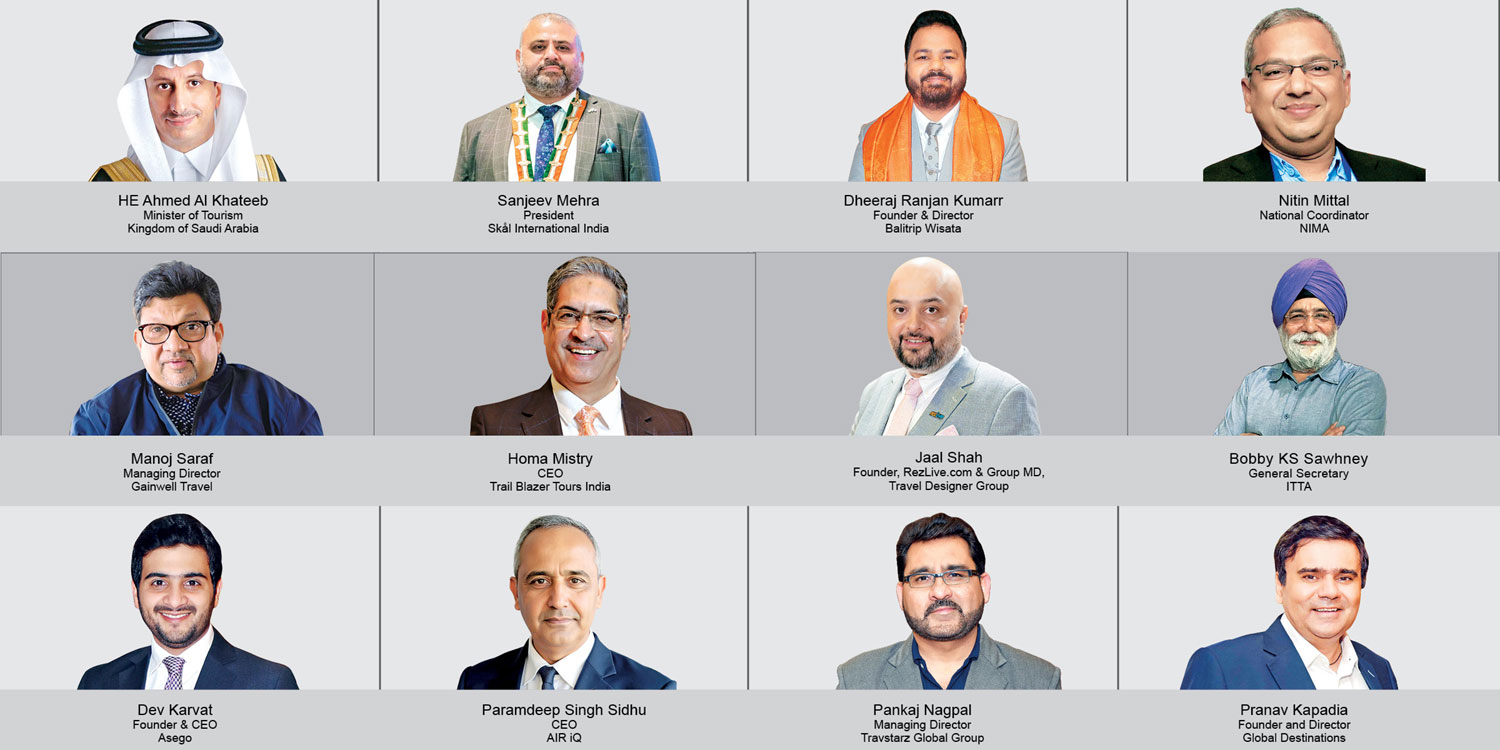With the travel industry adopting a more experiential and customer-centric approach, ITQ’s roadmap for 2025 prioritises enhanced AI-driven solutions, expedited integration of new airlines and technologies into the NDC platform.
Surbhi Sharma
With technology and innovation at the forefront, the travel industry is experiencing a paradigm shift. InterGlobe Technology Quotient (ITQ), the official partner of Travelport in India, Sri Lanka, Maldives, and Bhutan, hosted an event for the travel fraternity in Delhi and Mumbai recently. The event saw convergence of industry leaders, travel agents, and technology enthusiasts. Designed to unravel the complexities of modern travel technology, it provided attendees with valuable insights into automation and integration, NDC (New Distribution Capability) and Travelport+, while highlighting the burgeoning opportunities in the Indian travel market.
In an interaction with TRAVTALK, Anil Parashar, Executive Director, ITQ, and Anoop Tewari, Chief Commercial Officer, ITQ, shared their perspectives on the travel evolving landscape, emphasising the need for innovation, collaboration, and practical solutions to empower travel agents and enhance customer experiences.
Tackling the technology overload
Highlighting the overwhelming surge of content and technological solutions available in the market, Parashar said that there is so much of technology burst and content that an average person feels confused and overloaded. According to him, the focus should shift toward streamlining the clutter to deliver result-oriented and replicable solutions for the industry.
Parashar emphasised the importance of regular dialogue within the travel fraternity to exchange ideas and develop actionable strategies. “The process is ongoing. Integration and new technologies introduced by Travelport need broader adoption,” he said. He pointed to the progress in New Distribution Capability (NDC) adoption, with 20 airlines in India currently onboard. “We need to take this number significantly higher,” he noted, underscoring the need for simplified, comprehensible content for agents.
Innovations driving change
Parashar outlined the advancements ITQ and Travelport are making to support the industry. “We have introduced cutting-edge technologies like JSON:API, which enhances efficiency and adaptability,” he shared. He stressed the dual focus on content quality and customer-centric solutions as key drivers for the organisation’s continued leadership in India. “End of the day, more than any technology, it is the solutions that the travel agent and the customer are looking for,” he said, emphasising the importance of delivering optimal and cost-effective tools.
Promise & challenges of NDC
Delving into the concept of NDC, he described it as a transformative distribution capability offering new avenues for airlines to connect with customers directly. While some airlines are in advanced stages of adoption, others remain in nascent phases. “Initially, there was scepticism about whether NDC would render GDS obsolete,” he said. However, he added, GDS platforms have proven essential for integrating complex solutions and adapting to NDC’s demands.
Regional engagement & growth
Tewari elaborated on ITQ’s commitment to driving growth across India, from tier I cities to smaller markets. “We have introduced technology to nearly 150 agencies across India, helping many small startups become major players,” he said. He also highlighted the enthusiasm of second-generation travel agents for adopting new technologies.
Road ahead 2025
Parashar and Tiwari emphasised the customer’s evolving preferences, which now lean heavily toward experiential travel and fewer touchpoints. By 2025, artificial intelligence and integrated solutions will play pivotal roles in meeting these demands.
 TravTalk India Online Magazine
TravTalk India Online Magazine





